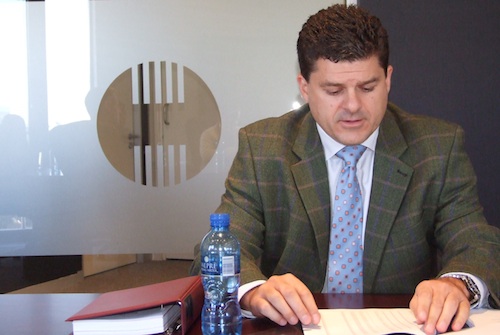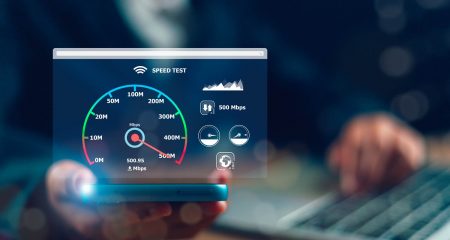
Huge Group trumpeted in a press release on Thursday about how it has turned around its fortunes financially, reporting a profit in the six months to 31 August 2010.
But a closer reading of Huge’s income statement shows that the group profited from derivatives — financial instruments — to the tune of R13,7m, and, without this accounting profit, it would in fact have reported a net loss for the period.
In its press release, Huge Group makes much of the fact that it achieved a net profit of R9,6m in the interim period.
But a line in the income statement shows that it profited to the tune of R13,7m from a “net change in [the] fair value of financial instruments”.
The financial instruments in question, so-called contracts for difference and single-stock futures, allowed Huge Group to profit from its rising share price.
There are concerns that if the share price goes into reverse, accounting losses on the derivatives could send the group deep into the red given its razor-thin margins.
Most of the accounting profit flowed as a direct result of the improvement in the company’s share price during the reporting period.
At an operational level, Huge Group’s numbers are far from rosy. In the six-month period it reported an operating loss of R4,2m, against a profit of R3,1m a year ago.
Huge Group CEO James Herbst says the operating loss is due mainly to significant investments in two start-up businesses, Huge Media and Eyeballs.
He says the Huge Telecom business, the group’s main subsidiary, enjoyed a good six months, despite a decision by the country’s mobile operators to cut connection incentive bonuses on Sim cards they sell.
Previously, the operators would provide cash to Huge and other companies for every Sim card they purchase. In the interim period, this revenue fell to R13,7m from R29,1m a year ago.
“If connection incentives hadn’t been removed, Huge Telecom would have made a much bigger profit,” Herbst says. “We would have been dancing naked on the tables.”
Certainly, Huge Group’s cash flow improved during the interim period. It reported cash flow from operating activities of R22m, from a negative R25,4m previously.
Total cash at the end of August was R13,5m, from debt of R20,7m a year ago. However, as one analyst points out, R13,5m in cash is “not a lot” and suggests the business doesn’t have a lot of breathing room if things go awry.
The group’s principal competitor, Vox Telecom, recently impaired goodwill and intangible assets to the tune of R749m. Vox blamed the decision by the Independent Communications Authority of SA to cut wholesale mobile call termination rates for most of the write-down.
Vox subsidiary Vox Orion is a big player in the least-cost routing (LCR) market, where arbitrage opportunities are drying up as termination rates come down.
Vox Orion is migrating clients across to Vox’s own network in an effort to the mitigate expected declines in its LCR business.
Huge Telecom is also heavily exposed to the LCR market, but Huge Group has decided it’s not necessary to impair goodwill. This is because “over the medium term, cost containment measures and alternative strategies identified by the company will largely eliminate the negative effects of the termination of connection incentive bonus revenue”. — Duncan McLeod, TechCentral
See also:
- Subscribe to our free daily newsletter
- Follow us on Twitter or on Facebook




